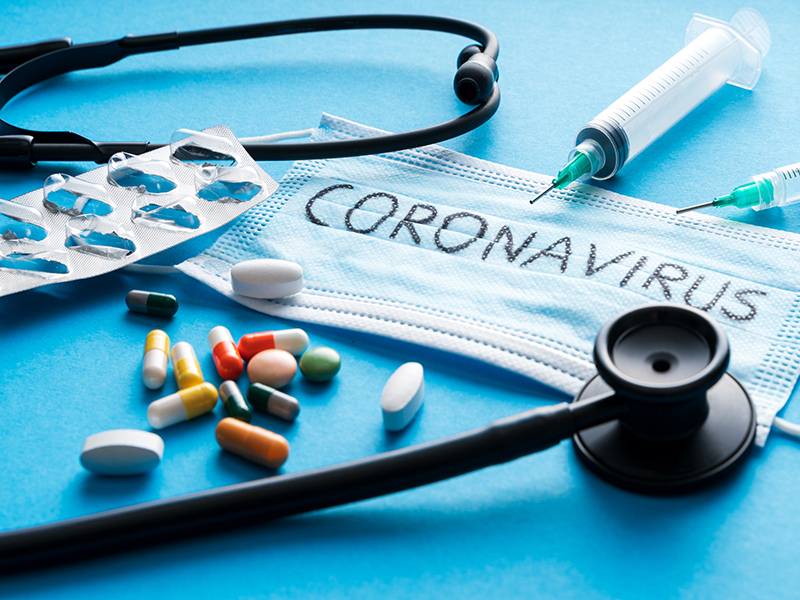Get Healthy!

- Posted June 22, 2020
Citing Lack of Benefit, NIH Halts Trial of Hydroxychloroquine for COVID-19
The U.S. National Institutes of Heath announced Saturday that it was stopping a clinical trial of hydroxychloroquine, a drug long supported by President Donald Trump as a possible panacea for COVID-19.
"A data and safety monitoring board met late Friday and determined that while there was no harm, the study drug was very unlikely to be beneficial to hospitalized patients with COVID-19," the NIH said in a news release.
As the agency noted, hydroxychloroquine is a malaria drug that does have antiviral activity. Early in the novel coronavirus pandemic, Trump hailed the drug as a "game-changer" in preventing or treating COVID-19, but large trials quickly began to dispel any hopes it might do so. Still, Trump told reporters that he actually took hydroxychloroquine for two weeks after White House staffers tested positive for coronavirus infection.
The now-discontinued NIH trial involved more than 470 adults hospitalized or diagnosed in an ER with COVID-19. All received either hydroxychloroquine or a placebo on a daily basis for five days.
But "the data from this study indicate that this drug provided no additional benefit compared to placebo control for the treatment of COVID-19," the NIH said.
The cancellation of the trial deals yet another blow to hopes for hydroxychloroquine. Earlier this month, the U.S. Food and Drug Administration withdrew its "emergency authorization" for the use of hydroxychloroquine and a related drug, chloroquine, against COVID-19.
The agency said in a letter that the drugs are "unlikely to be effective" as treatments for the coronavirus, The New York Times reported.
The FDA now says the drugs should not be used outside of clinical trials.
There had even been signs that the drugs could cause real harm: The FDA has also issued a warning that hydroxychloroquine and chloroquine might trigger dangerous heart rhythm abnormalities.
One study published June 3 -- this time a "gold standard" randomized clinical trial -- found that hydroxychloroquine could not prevent COVID-19 any better than a placebo.
Also, 40% of those taking hydroxychloroquine developed side effects including nausea, upset stomach or diarrhea. However, no serious side effects or heart problems occurred in that study, the researchers noted.
In that trial, researchers randomly assigned more than 800 people in the United States and Canada to take hydroxychloroquine or a placebo for five days. All of the participants had been exposed to people with COVID-19.
Overall, 12% of those taking hydroxychloroquine developed COVID-19 as did 14% taking the placebo, the findings showed. The difference was not statistically significant, the study authors noted.
"Our objective was to answer the question of whether hydroxychloroquine worked to prevent disease or did not work," said lead researcher Dr. David Boulware, an infectious disease doctor at the University of Minnesota. "While we are disappointed that this did not prevent COVID-19, we are pleased that we were able to provide a conclusive answer."
More information
The U.S. Centers for Disease Control and Prevention has more about COVID-19.
SOURCES: U.S. National Institutes of Health, news release, June 20, 2020; University of Minnesota, news release, June 15, 2020; The New York Times




